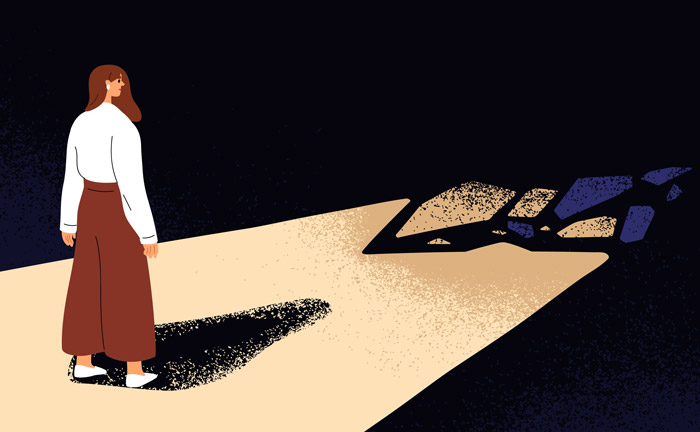Do You Like Scary Movies?
When you watch a scary movie, there is almost always a moment when you are just sure that someone—or something—is about to attack the protagonist. The camera comes in close, the music gets more intense, and the feeling of suspense can be overwhelming.
Then the monster or villain makes their move, appearing suddenly, and delivering what is known as a “jump scare.” Even when you know the jump scare is coming, it can still be pretty darn scary.
When you are in recovery from a substance use disorder, there is always something lurking out there that you are hoping to avoid. That something is a relapse.
While we wish it were not true, sometimes a relapse gets you. But unlike a poor soul in a horror flick, your fate is far from sealed.
Relapse Is a Reality
While the scary creatures on the big screen are fictions, the truly scary thing about relapses is that they are real. And not only are they real, they are common.
How common? Studies suggest that nearly one-third of alcoholics in recovery relapse within the first year. That’s a frightening number, right? And relapse continues to be a possibility for many years into the future.
A substance use disorder is a brain disease that can be treated but not cured. At any time in the recovery journey, a person may struggle with any number of obstacles to their ongoing sobriety. Cravings, stress, habitual behavior, bad influences, depression, anxiety, and more can make it very difficult to stay sober—even when you are truly committed to doing so.
So, if you experience a relapse the important thing is what you do next.
Make a Smart Choice
One of the things we know about characters in horror movies is that they have a tendency to make terrible choices. A group splits up for no discernable reason. A couple decides to get romantic in a car parked in the middle of nowhere even as the radio warns of danger. A terrified individual hides in a silly spot or decides to make a run for it at exactly the wrong moment. A mysterious person offers a cryptic warning to folks who immediately decide to ignore it.
A person in recovery who experiences a relapse is in danger of making a bad decision, too.
They might decide that they might as well just keep drinking or taking drugs. It is an understandable temptation. After all, they have been through detoxification and rehabilitation—and yet here they are again. It is mighty tempting to conclude that treatment doesn’t work (or at least doesn’t work for them), and so they might as well accept that they will never manage to stay sober.
But that is the wrong move. The right move is heading back to treatment.
Sometimes a Sequel Is Just What You Need
When a scary movie attracts a big audience, there is one thing you can count on for sure: There will be a sequel (and likely many more than one!). It’s easy to understand why. When something works, you stick with it.
And that is how you should think about returning to treatment after a relapse. You already know that treatment can help you regain your sobriety, because you have already had that experience.
Just like a movie sequel builds on the original premise, another round of treatment provides the opportunity to refine and strengthen your plans and strategies for maintaining your sobriety. The rehabilitation process will include an opportunity to really think about what tripped you up so that you can more successfully avoid similar issues in the future.
We would love to assure you that once you have been through treatment a second time, you will be sober for life. But you might not be. Fortunately, if you relapse again, you already know what to do. And each “sequel” in your recovery story is a chance to nudge that story toward a happy ending.
Treatment Is Nothing to be Afraid Of
When you are in the grips of a substance use disorder, it can feel as though there is nothing you can do to make your situation better—especially if you are feeling unsure (or even a little afraid) about seeking treatment. You might be worried that you will be judged or scorned. You might be worried that detox will be too hard or that therapy sessions will be too embarrassing. You might be worried that it just won’t work.
At The Aviary Recovery Center in Eolia, MO, we are committed to putting your fears to rest. We offer compassionate, evidence- based, personalized treatment—and we are committed to helping you start your recovery journey with confidence. And if a relapse jumps out and scares you? We will be here for the sequel, too.










